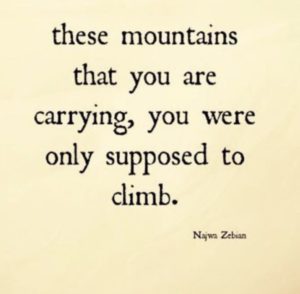Attachment & Trauma Work
Family Systems and our experiences growing up allow us to take on patterns and templates for understanding life, much the way a fossil takes on the shape of its environment. Therapy can help change imprinting that lead to unhealthy behaviors and promote healthier ideas and behavior.
T. Allen

Bessel Van der Kolk, Founder and Medical Director of the Trauma Center at JRI is renowned for his work in Trauma.
“• Traumatic Memory is stored in the limbic system and in body memory
• Since this memory was stored in high arousal, for the treatment to work, there must be high arousal for the client: re-enactment
• Once the right side of the brain has been triggered, focus of treatment is to engage the left side of the brain.
• Help clients give words to their sensations and change the outcome. Traumatized people simultaneously remember too little and too much.
• Trauma hijacks the emotional brain and causes the body and emotions to enter states of freeze, fight or flight.
• Traumatized human beings recover in the context of relationships.
• While human contact and attunement are the wellspring of physiological selfregulation, the promise of closeness often evokes fear of getting hurt, betrayed or abandoned. Shame plays an important role in this understanding.
• Being traumatized is not just an issue of being stuck in the past; it is just as much a problem of not being fully alive in the present.
• PTSD is the result of a fundamental reorganization of the central nervous system based on having experienced an actual threat of annihilation or seeing someone else being annihilated which reorganizes self experience as helpless and the interpretation of reality, the entire world is a dangerous place.
• Trauma causes people to remain stuck in interpreting the present in light of an unchanging past. “
The Body Keeps Score – Brain, Mind, and Body in the Healing of Trauma, Bessel A. van der Kolk, MD, Penguine 2014 (http://www.traumacenter.org/about/about_bessel.php)

Traditional Trauma work can sometimes not address the underlying attachment issues & wounds. The trauma can be worked through, but some clients often do not have the skills to connect well with others going forward or will tend to continue to repeat past trauma in their future relationships. I work with clients on specific tasks that outline work on attention, attunement, affect regulation, sensory awareness, brain health, relaxing the limbic system, grief work, supporting healthier beliefs and loving boundaries. I also work with couples on attachment styles and to understand how to work best with each style.